US, Israel seek to break up Muslim countries in region: Iran parliament speaker
Iran’s parliament speaker says the United States and the Israeli regime are enacting a scenario whose main goals are to disintegrate regional Muslim countries in addition to expelling Palestinians from their homeland, Judaization of Jerusalem al-Quds and destruction of al-Aqsa Mosque.
Mohammad-Baqer Qalibaf made the remarks in Tehran on Monday, as he opened an international webinar of Parliaments in support of the Palestinian cause, which was attended by parliament speakers and senior lawmakers from a number of Muslim countries.
Qalibaf said that enemies of the Islamic world are trying to shatter the unity of the Muslim countries through sanctions, arbitrary and unilateral actions, as well as threats and subjugation.
“Today, we have come together in this virtual meeting in order to honor the resistance of the Palestinian people and the axis of resistance; and to reiterate that no other issue is as important for the Muslim world in the 21st century as the liberation of the Holy Quds and the Palestinian cause," Iran's top parliamentarian said.
“As you know, the occupation of Palestine and the displacement of Palestinians who lived there constitute the worst tragedy that the deviant current of Zionism created at the heart of the Muslim world in the aftermath of the Second World War,” the Iranian parliament speaker noted.
He also criticized the silence and apathy of some rulers in the Muslim world as well as such international bodies as the United Nations and human rights organizations in the face of the Israeli regime’s ongoing crimes.
“Today, not only we see no support and assistance for the oppressed people of Palestine, but unfortunately a few country leaders also trample on the rights of the Palestinian people by establishing political, economic, trade and even military, security and investment relations [with the Tel Aviv regime] and contribute to the Zionist settlement projects,” Qalibaf pointed out.
“In case the Muslim world does not realize such a dangerous conspiracy and does not adopt prompt measures to prevent it and allow Zionists to institutionalize normalization of [Muslim countries’] ties [with that regime], they would take the next step to break up the Muslim world,” the senior Iranian legislator said.
Qalibaf emphasized that without a doubt, US President Donald Trump's so-called deal of the century on the decades-old Israeli-Palestinian conflict has failed, and Muslim nations, thanks to their rich Islamic cultural background, will not allow Zionists to dominate the region.
‘Palestinians will continue resistance until liberation of al-Quds’
In another part of the webinar, secretary-general of the Palestinian Islamic Jihad movement, Ziad al-Nakhala, said Palestinians will continue their struggle against the Israeli occupation until their goals, including realization of their right of return and the liberation of Jerusalem al-Quds, are achieved.
“Today marks 12 years after the Zionist regime first invaded the Gaza Strip [which began on December 27, 2008 and ended on January 18, 2009]. The aggression targeted everything in the Strip, including civilians and social infrastructure, and resulted in the martyrdom of more than 1,400 people, mostly women and children,” Nakhala added.

“The onslaught targeted civilian homes and religious centers, schools and hospitals, and internationally-banned weapons were employed for more than 20 days,” he said.
“Resistance forces, in return, mightily defended Palestinian people with limited armament at their disposal at the time, and forced the enemy to retreat from the area it had infiltrated,” Nakhala stated.
The Islamic Jihad leader went on to say that the Israeli regime has been relentlessly pressing ahead with various forms of aggression, including economic siege, bombing and destruction, ever since.
“In 2012, the regime launched another war on Gaza. Resistance forces, equipped with specialized military equipment, resisted more vigorously and were able to target a large number of Israeli cities, including the capital of the regime. This took the enemy by surprise and it was forced to shorten the duration of the aggression,” Nakhala said.
He added that the 2014 Gaza war, which lasted for more than 50 days, exhibited the Palestinian resistance forces’ ability to deal with any new Israeli act of aggression as invading forces could not defeat Palestinians and resistance fighters, and the Tel Aviv regime accepted the ceasefire again without any preconditions.
Nakhala highlighted that Israel has so far failed to impose its conditions on Palestinian resistance groups, noting that normalization deals recently signed between Israel and a number of Arab regional states are aimed at mounting further pressure on Palestinians.
He said Palestinians will cast their ballots in the upcoming parliamentary and presidential elections, which are slated to be held on May 22 and July 31 this year, respectively, despite all attempts by enemies to reinforce their internal divisions.
Syria says firmly united with oppressed Palestinian nation
Speaker of the People's Council of Syria, Hammouda Youssef Sabbagh, for his part, reiterated that his country stands firmly united with the oppressed Palestinian nation.
He said the “cancerous” Israeli regime has brought Palestinian people nothing other than displacement and internal divisions.
Sabbagh added that Washington unremittingly supports the Tel Aviv regime as well as Takfiri terrorist groups that wreak havoc in the region.
“We have moral, legal and humanitarian responsibilities in order to defend [Jerusalem] al-Quds,” Sabbagh said, stressing that Damascus remains united with Tehran in the wake of the cowardly assassination of prominent Iranian nuclear scientist Mohsen Fakhrizadeh.

Fakhrizadeh, who headed the Iranian Defense Ministry’s Organization of Defensive Innovation and Research, was targeted on November 27 last year in a multi-pronged attack involving at least one explosion and automatic gunfire by a number of assailants in Absard city of Damavand County, Tehran Province.
“Resistance is much less costly than submission in the face of enemies’ pressure,” Sabbagh said.
Turkey: Commitment to Palestine binds Muslims together
Additionally, Speaker of Turkey’s Grand National Assembly Mustafa Şentop said commitment to the issue of Palestine binds Muslim nations together.
Addressing the same seminar on Monday, the Turkish parliamentarian emphasized that the Ankara government will continue to make its utmost efforts in order to put an end to various forms of cruelty to which Palestinians are subjected.

“The international community must assume its responsibilities and duties to stop double standards applied to the issue of Palestine,” Sentop said, adding, “will continue to defend the establishment of an independent Palestinian state, and will continue to dispatch humanitarian aid consignments to Palestinian territories.”
Lebanon says strongly supports Palestinian refugees' right of return
Lebanon’s parliament speaker, Nabih Berri, for his part, emphasized that Beirut strongly supports Palestinian refugees' right of return to the homeland from which they have been expelled.
Berry called on all Palestinian factions to throw their weight behind the anti-Israel resistance front.

Lebanon’s top parliamentarian also called for an immediate end to the Israeli regime’s settlement construction and expansion activities in the occupied Palestinian territories.
Berri warned that the Israeli-imposed blockade of the Gaza Strip is deteriorating health conditions in the impoverished Palestinian enclave amid the outbreak of highly contagious coronavirus.
Indonesia: Normalization with Israel cannot help Palestinian people
Further in the webinar, speaker of the Indonesian House of Representatives, Puan Maharani, said her country will continue to support the Palestinian cause.

She stressed that normalization of relations between some Arab states and Israel will not help Palestinian people, urging Palestinians to stand united in the face of the Israeli occupation.
Iraq: Jerusalem al-Quds remains Palestine’s eternal capital
Addressing the webinar, Deputy Speaker of the Iraqi Council of Representatives Bashir Khalil al-Haddad emphasized that Jerusalem al-Quds was, is, and will be the eternal capital of the State of Palestine, irrespective of all plots by Israel to change its status quo.
He added that Iraq strongly opposes the decision by the outgoing US President Donald Trump on December 6, 2017, to recognize Jerusalem al-Quds as the capital of Israel.

“Regional peace can be restored only if the issue of Palestine is completely resolved, and Israel’s inhumane acts against Palestinians come to an end,” the Iraqi parliamentarian said.
Haddad added, “We must expose the cruel nature of the [Israeli] regime to the world public opinion.”
Yemen: Resolution of Palestinian issue key to peace in Middle East
Deputy Parliament Speaker of Yemen's National Salvation Government, Abdul Rahman al-Jama'i, said resolution of the Palestinian issue is the key to the establishment of peace across the Middle East region.
“The Yemeni government, parliament and people will not give up on the Palestinian cause, even though we are subjected to a cruel [Saudi-led] aggression,” he added.
“The efforts made by arrogant countries, including the United States and Great Britain, to facilitate normalization of ties and capitulation to Zionists will not bear fruit. The goal of the global arrogance is to ensure the security of Zionist regime in the occupied territories, and this will not be materialized,” Jama’i said.

He also dismissed as “unacceptable” attempts by certain Arab states to portray normalization of relations with Israel as a breakthrough for peace.
“Palestine has a free nation that has the right to decide its own fate, the right to return home and the right to establish a state. They are not subordinates to the Arab states of the Persian Gulf,” the senior Yemeni lawmaker pointed out.
Haniyeh: US aims to “liquidate” the Palestinian cause
The head of the political bureau of the Gaza-based Islamic Resistance Movement, Hamas, also addressed the webinar through a message, saying that the US aims to “liquidate” the Palestinian cause.
“An independent Palestinian state must be established with al-Quds (Jerusalem) as its capital. The Israeli occupation over any sector of the Palestinian lands is not recognized,” Ismail Haniyeh said in his message.

“The Palestinian nation’s resistance against the occupying regime of Israel will continue. Muslim nations must attach top priority to the issue of al-Quds,” the Hamas leader noted.
‘Israel discriminates against Palestinian amid COVID-19 pandemic’
Mojtaba Zonnour, who chairs Iranian parliament's Committee on National Security and Foreign Policy, also addressed the webinar, saying that the Israeli regime is pressing ahead with its settlement construction activities, denying displaced Palestinians the right of return.
“Our enemy does not grant the oppressed people of Palestine the right to self-determination, which is the most basic human right. We witness a discriminatory behavior against Arabs, Muslims and other residents of the Palestinian territories when it comes to vaccination against COVID-19, which is a sovereign act,” he said.

“The oppressed people of Palestine are deprived of the most basic right to public health. Today we see the Zionist regime getting stronger and some leaders of treacherous [regional] states collaborating with it. We, therefore, should not stand idle and be indifferent,” Zonnour concluded.
D-8’s role in Iran’s economy after Cairo summit
China slams US as ‘war-addicted’ threat to global security
China ‘firmly opposes’ US military aid to Taiwan
VIDEO | Press TV's News Headlines
President Yoon Suk Yeol to be removed from office
At least 19 Gazans killed by Israeli airstrikes since dawn: Medics
Leader: Iran neither has nor needs proxy forces
US fighter aircraft shot down ‘in friendly fire’ amid aggression on Yemen












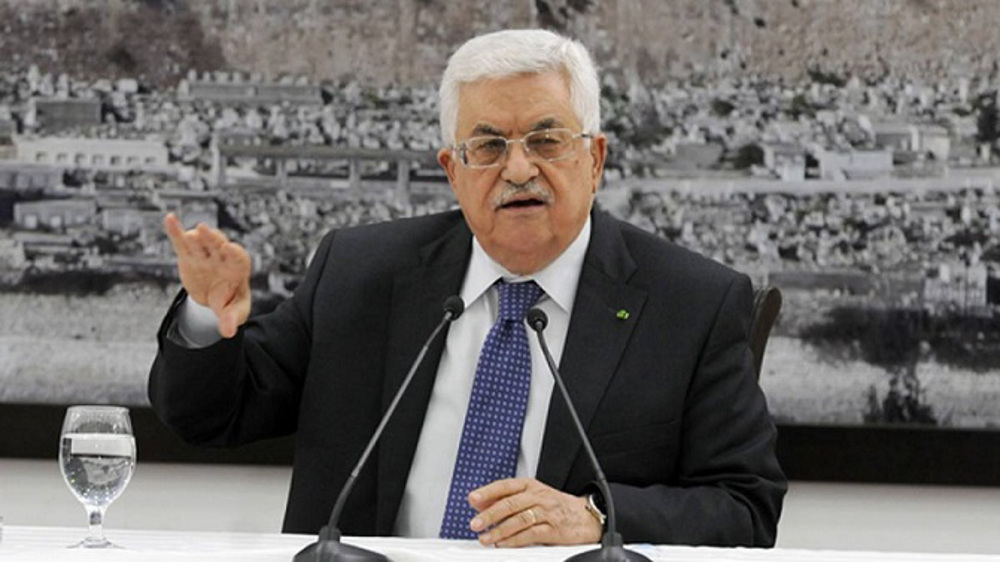
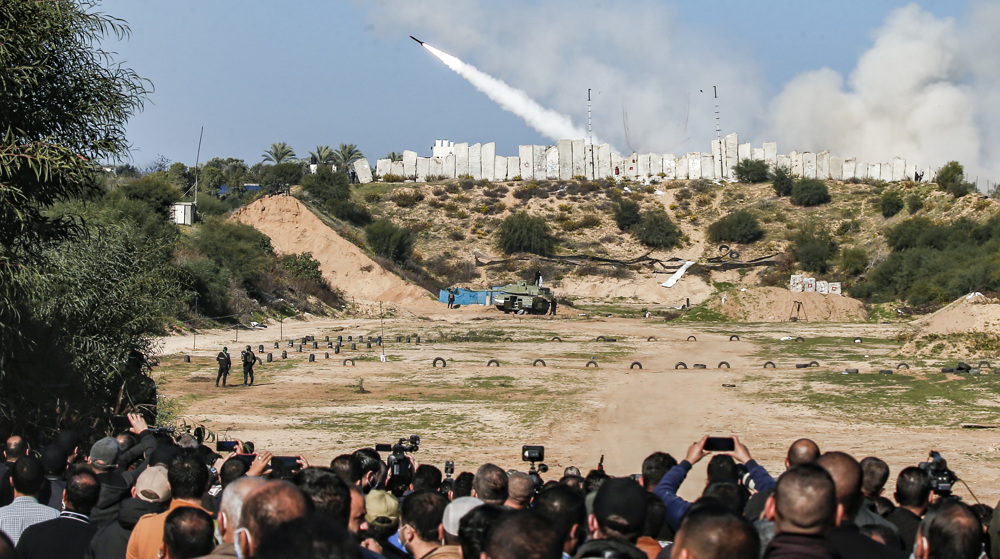
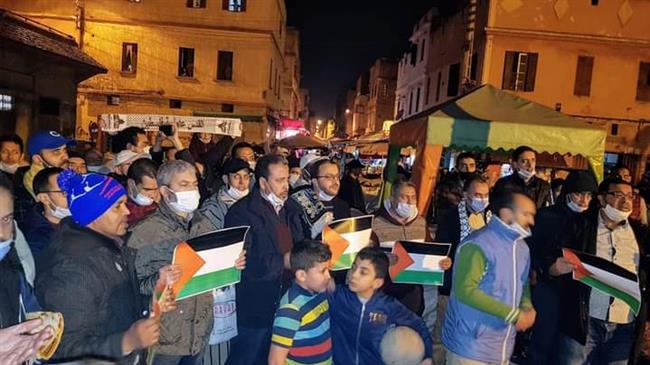
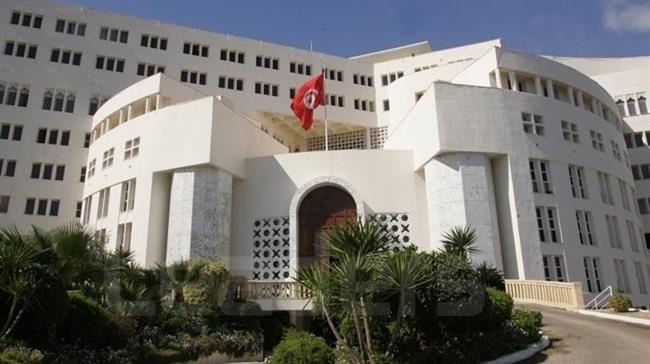
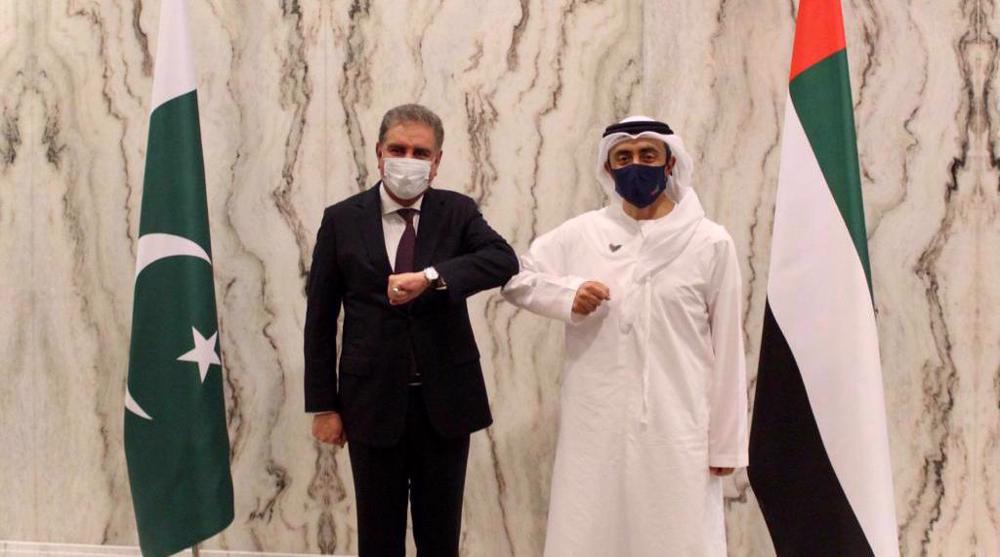
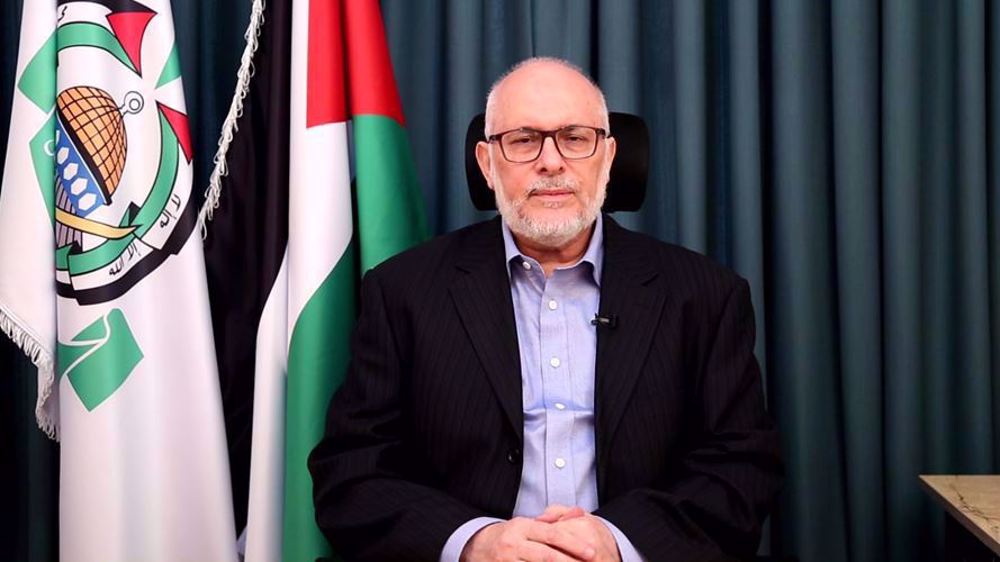

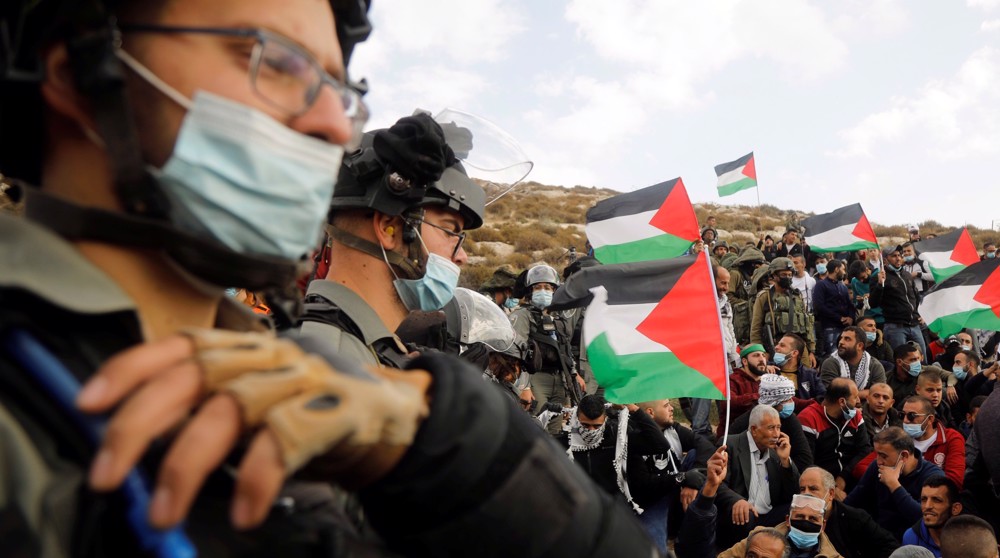
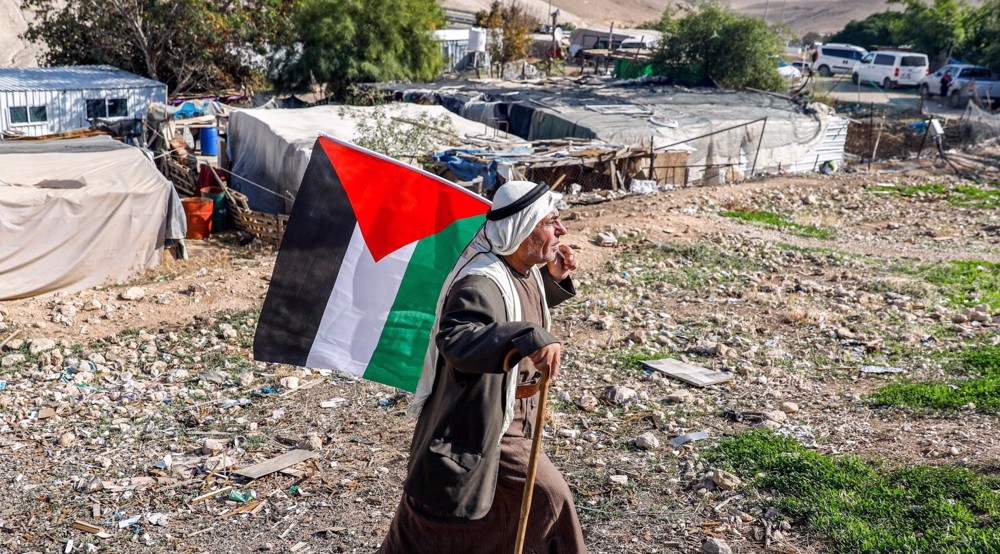
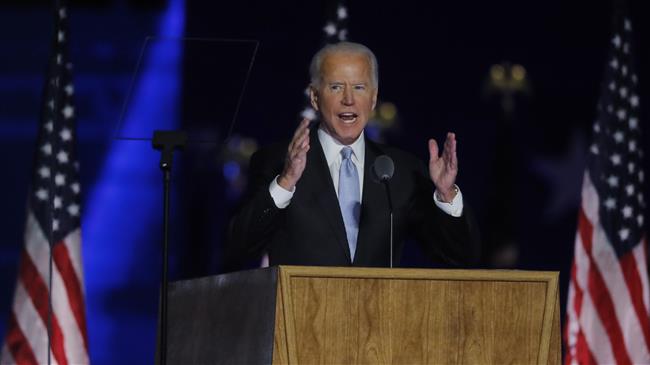

 This makes it easy to access the Press TV website
This makes it easy to access the Press TV website